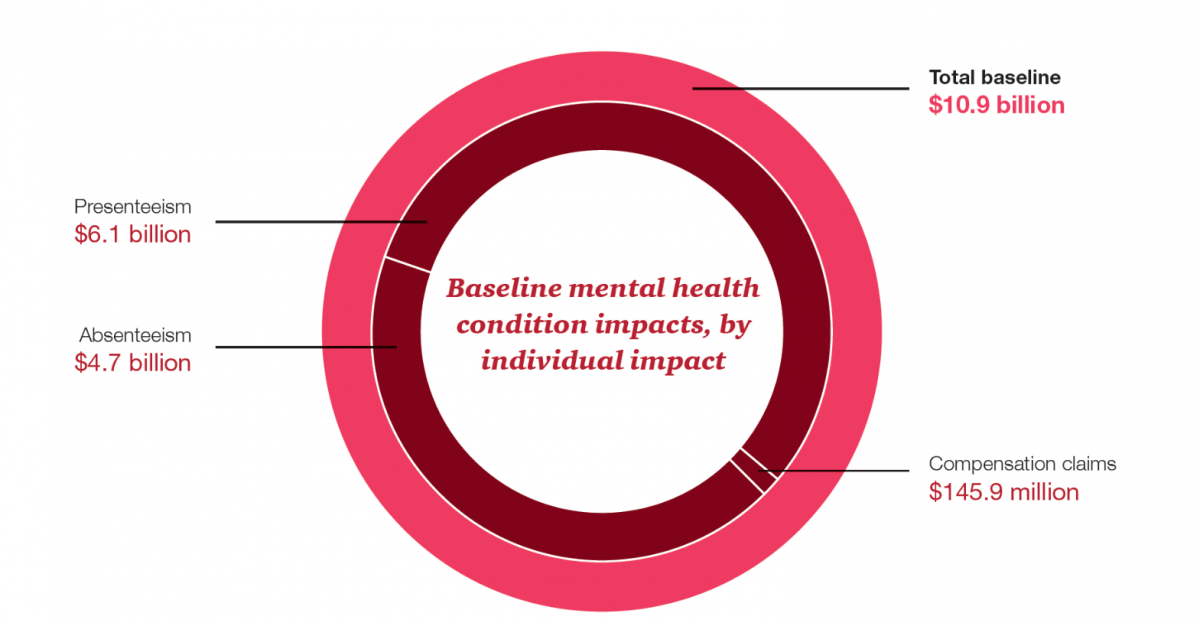In recent times, more and more attention is given to the importance of mental health in the workplace. We now know what is at stake when we don’t create safe, sound working environments. In Australia, mental health compensation claims annually cost $145.9 million and the resulting absenteeism costs a further $4.7 billion.

However, employers and members of senior management can be unnecessarily intimidated by the processes it takes to get their workplace to this point. It would do a great deal of good if the focus was shifted from constantly falling short of perfection to making genuine and sustainable progress in terms of mental health in the workplace.
Workable, sustainable plans for better workplace mental health take time to devise. The desire to introduce the perfect plan from the get-go discounts one of the most critical aspects of the success of successful mental health plans: collaboration. From executives, to managers to employees, everyone has a specific role to play. Without buy-in from all these groups, plans are destined to fail and finding a plan that works for everyone can take a lot of time.
Inevitably, this comes from the top down. Leaders must show an active commitment to mental health at work and encourage employees to speak openly about conditions like anxiety, depression and workplace bullying.
Before implementing any new policies, senior management should take the time to educate themselves and their staff about mental health and the importance of cooperation in any new mental health initiatives or changes in policy.
Every workplace is different and so are their needs when it comes to mental health. These needs should be identified before plans are developed. With an accurate picture of the current working environment, more workable plans can be developed.
However, no matter how much internal research and surveying is conducted, not all hurdles can be anticipated. That is why it is important, to track a plan’s success in terms of how it is meeting the needs of a workplace rather than whether or not it is eliminating the problem entirely. More often than not, there will always be some mental health concerns that need addressing in a work environment and to think otherwise would be short-sighted.
Facilitating solutions to issues with mental health cannot happen overnight. By expunging the expectation of having perfect solutions that work 100% of the time, employers can better understand the ways that mental health can impact their staff as individuals rather than as employees.
If more workplaces adopted a ‘progress not perfection’ mindset, employers and employees alike would be more comfortable knowing that while the work may never be done, both parties will continuously seek out ways to improve workplace mental health while achieving effective outcomes for their bottom line.
Ref: Heads Up 2017/ SafeWork Australia 2017


